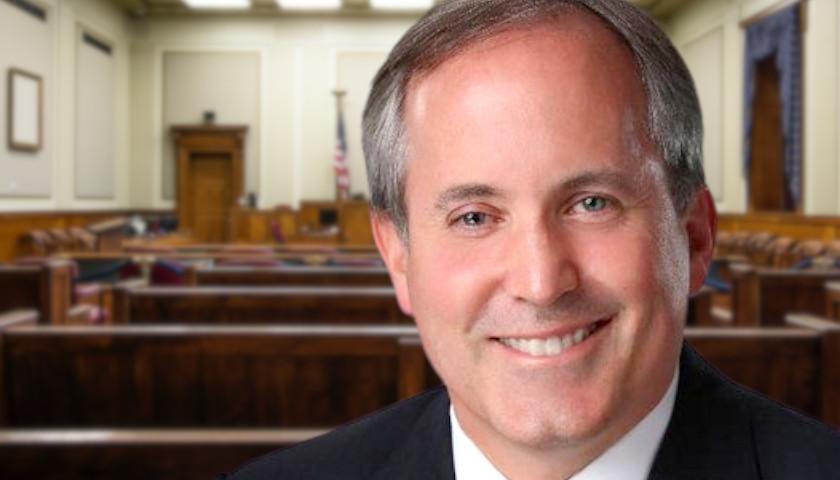by Adam Ellwanger
Recently, I read with great interest James Lindsay’s essay called “The Woke Breaking Point.” There, he invites his readers to ask friends and acquaintances “What would it take for you to say that the Woke movement has gone too far?” This, he suggests, is a way to help people keep themselves honest: if you consider in advance what state of affairs, specifically, would be “too far,” then you will be able to recognize better the excesses of the totalitarian Left and more ready to resist them at the point when it becomes absolutely necessary.
Reframing the question, he writes: “Ask. When is enough, enough?”
To his credit, Lindsay recognizes that posing this question is a tricky rhetorical gambit. “To get real about this, you shouldn’t expect this conversation to go well,” he writes. “It might, of course, depending on the relationship, but it’s very likely to be received defensively or with an assumption that you’ve lost your mind. So here’s some advice: don’t expect it to go well. Don’t expect them to come around. Don’t expect them to take you seriously. Just get the question out there where they have to think about it.”
I agree wholeheartedly that it is important for everyone who is not entirely on board with the Woke agenda to seriously consider this question. I am involved in a group chat with seven men, most of whom I know from high school. We are all in our 30s and 40s. We talk about lots of things, but many of our conversations are political. I think it’s fair to say that a couple of the guys consider themselves “nonpolitical.” One or two have some political interests, but are not particularly keen on defining themselves politically. And four of us have much to say on these matters. We have heated disagreements, but it’s also safe to say that no one in the chat is a left-wing activist. Given these conditions, I was especially curious to see how my friends would answer Lindsay’s question.
He was right – there was some defensiveness in how the question was received. My friend from Texas readily agreed that it has already gone much too far and that enough was enough a long time ago. Of those who were not yet ready to concede that, none were willing to name a specific line that, if crossed, would be too far.
My cousin, a Maryland architect, wanted me to clarify terms – a common response from him. What does it mean, he asked, to have “gone too far”? It means, I explained, the point at which wokeness becomes a danger to the traditional American understanding of civic law and liberty. Then we got into how to define “danger.” Once we got past the semantics, he conceded that it has already shown itself to be dangerous – but a long-term danger, not an imminent one. Thus, he admitted it had already “gone too far.”
Another friend, who works in K-12 public education in Mississippi, said it had already “gone too far,” wanted to find ways to express that, but rightly noted that “not everyone has the job security” that I do. He continued: “I am an at-will employee and I can be terminated at any time.” Citing the fact that he has children to feed, he said “I’m not losing my job (potentially) so I can publicly let my opinion be heard. That is a pussy move, and a choice I make.”
My friend isn’t wrong: he does face personal and professional risks in speaking to the excesses of the progressive Left. But the fact he cannot say those things without jeopardizing this job in public education is one more illustration of just how deeply those excesses have permeated our institutions.
On the whole, it was an interesting and somewhat tense conversation. But it demonstrated the absence of the implicit question that follows the one Lindsay asks. All the men who participated in the chat agreed that the Left has “gone too far.” They agreed that explosions of rage on the Left are “dangerous” to the nation. They all agreed enough is already enough.
And yet, when one says “Enough is enough” – when one says that a line has been crossed – one implies that there will be a response or a reaction.
President Obama said the use of chemical weapons in Syria was a “red line.” But when Syria used chemical weapons, the promised consequences never materialized. Once you agree that “enough is enough,” or once you can name a point at which it would be, you run smack into another question – one that is reminiscent of schoolyard taunts: “Well? What are you going to do about it?”
Despite the agreement in my group chat that “enough is already enough,” no one could name any response they were willing to take, except for voting. Some of them probably won’t even do that. Only two people on the chat will certainly be voting for Trump. The others that vote will vote for Biden, vote third party, or will write in a candidate.
But obviously, voting in November is no real response at all. If “enough” is truly enough, then simply resolving to take the trouble to cast a vote in November seems wholly inadequate to countering the excesses of the Left. Donald Trump can’t stop this. Only the citizens who have had “enough” can do it. Voting isn’t enough.
My friend from Texas was right to ask me: “Adam, have you reached your [breaking] point? What are your public actions?” Well, of course, I vote. My writing—essays like the one you’re reading – are one way that I try to combat the zealots. As a teacher, I don’t adopt any “antiracist pedagogies.” But I do teach the tradition of Western thought, and I stress that taking this tradition seriously will equip my students with the most effective means of fighting racism. I speak out on campus – when I feel that doing so might be effective. I give some money to organizations that I believe might effectively counter the Left’s assault on America. I could probably do more though. And you probably can, too.
When you’ve answered Lindsey’s question (if you can answer it – and if you can’t, you’re with the mob on the road to Utopia, come hell or high water – probably the former) ask yourself the next question: “Well? What am I going to do about it?” A friend on my chat (referring to my comments) cautioned the others, saying to be wary of people suggesting you must do X, Y, or Z. I’m not asking anyone to do X, Y, or Z.
If you have had “enough,” I’m asking that you do something. Ask yourself: given my own gifts and my own limitations, how can I contribute? For all of us, this will require some sacrifice. This means you also have to consider what, specifically, you are willing and able to sacrifice. But if you’re unwilling to sacrifice anything – if you’re unwilling to respond in any way other than casting a ballot – then it doesn’t matter what you say: you haven’t had enough.
– – –
Adam Ellwanger is an associate professor of English at the University of Houston – Downtown where he directs the M.A. program in rhetoric and composition. His new book, Metanoia: Rhetoric, Authenticity, and the Transformation of the Self, will be released from Penn State University Press in 2020.
;






oooh….well written and definitely makes one think. I’m going to have to go check out that essay. I would like to do more, but honestly, I have no idea – other than acting as a “keyboard warrior” to do. Will definitely have to give this some very deep thought.